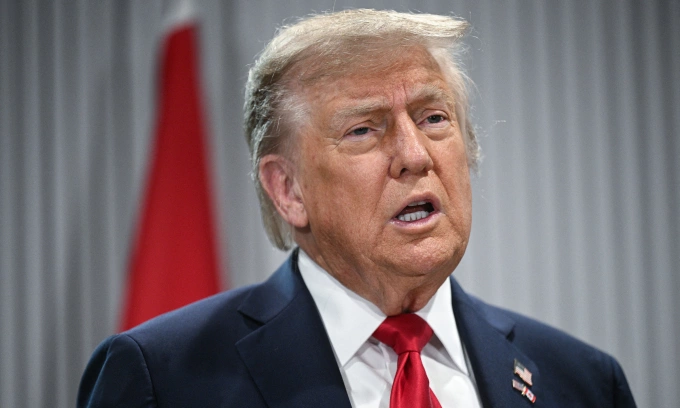Trump Explains Early G7 Exit, Says He’s Focused on ‘Real End’ to Israel-Iran Conflict
President Donald Trump said he left the G7 summit in Canada earlier than planned to better monitor the escalating conflict in the Middle East, emphasizing his goal of securing a “real end” to the hostilities between Israel and Iran—not just another ceasefire.
“I can follow the situation much more closely from the Situation Room at the White House,” Trump told reporters aboard Air Force One on June 16. “I don’t trust phones—people can listen. Being there in person is much better.”
Trump said he’s aiming for a lasting resolution, not a temporary truce. “If Iran gives up entirely, that would be fine with me,” he added. When asked whether he expects Israel to de-escalate, Trump noted, “We’ll know in the next couple of days. But for now, nobody’s backing down.”
He declined to confirm whether the Pentagon or Joint Chiefs Chairman Gen. Dan Caine had presented military options in case Iran strikes U.S. assets in the region. “Iran knows better than to mess with us,” Trump warned.
Asked if the U.S. is prepared to destroy Iran’s nuclear infrastructure, Trump responded, “Hopefully their nuclear program is gone before it ever comes to that.”
The White House announced earlier that Trump would cut his G7 trip short due to the deteriorating situation in the Middle East—marking his shortest attendance at a G7 summit. The conflict between Israel and Iran erupted on June 13, when Israel launched its surprise “Operation Rising Lion,” targeting key Iranian commanders and nuclear scientists. Iran responded with a massive counteroffensive dubbed “True Promise 3.”
Now entering its fifth day, the conflict shows no signs of slowing. Iranian officials reported on June 16 that 224 people have been killed and more than 1,200 wounded in Israeli airstrikes, with over 90% of the casualties being civilians, according to Health Ministry spokesperson Hossein Kermanpour.
Israel, meanwhile, says Iranian ballistic missiles have hit both military and civilian targets—including residential buildings in Tel Aviv—leaving at least 24 dead and nearly 600 injured.
During his brief appearance at the G7, Trump managed to sign a new trade agreement with UK Prime Minister Keir Starmer, lowering U.S. tariffs on British cars from 27.5% to 10% for the first 100,000 vehicles annually. The U.S. also agreed to suspend tariffs on aerospace imports from the UK.
Sources: CNN, Reuters, CBS



